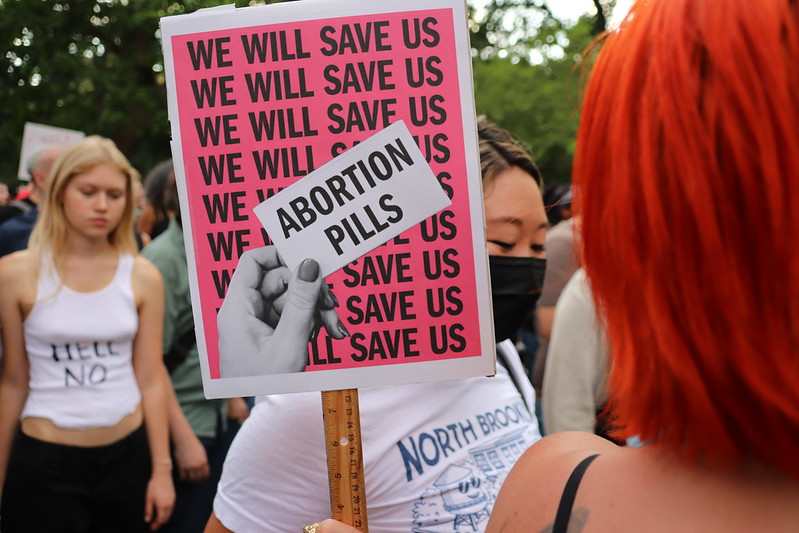
On Tuesday, the U.S. Supreme Court presided over a case that could, depending on the decision handed down, radically change how and when Americans access abortion pills.
Arguments were offered regarding the classification of mifepristone to determine whether the medication can be sent to patients through the mail. A group of anti-abortion doctors, led by Christian legal group Alliance Defending Freedom, seeks to take away such access, citing now-debunked studies that claim the drugs are unsafe, and a 151-year-old law about sending or receiving such medications by mail.
The Supreme Court seemed likely to reject those arguments, however, with even conservative judges displaying skepticism. Justice Amy Coney Barrett, who was appointed by former President Donald Trump, voiced doubts that the complainants had met their burden of proof of harm. “I think the difficulty here is that, at least to me, these affidavits do read more like the conscience objection is strictly to actually participating in the abortion to end the life of the embryo or fetus,” she said.
Americans didn’t always have mail-order access to the drug. During Covid lockdowns, the U.S. Food and Drug Administration eased restrictions that had previously made it impossible to secure mifepristone remotely – for decades prior, a patient would have to go to an in-person clinic for the pills. In light of the pandemic, that limitation was eased.
Pro-abortion activists are incensed by attempts to reverse that call. “This cruel and baseless lawsuit is designed to intimidate and confuse Americans,” Amy Hagstrom Miller, CEO of Whole Woman’s Health, told NBC News. “This case is not about health and safety – it’s about power and control. Here is the truth: medication abortions are safe and effective.”
It is also currently the preferred method of abortion in the U.S., with six out of 10 people opting to carry out their abortions medically, studies show.
The pills opened doors that were closed when Roe v. Wade, the landmark Supreme Court decision that had made safe, legal abortions the law of the land, was reversed in June 2022. Since then, abortion access has become spotty and unreliable, if it still exists at all, depending on where patients live – owing to a mix of outright bans in some parts of the country, and oppressive limitations set forth in others.
Following the repeal, activists fought to make sure abortion pills could still be ordered by residents of states where limitations and bans made the abortion procedure impossible to access. In New York, Gov. Kathy Hochul enacted legislation that protects in-state doctors who provide abortion care to patients in other, far less permissive parts of the country. Several other states followed suit.
In addition to it now being a necessity, Dr. Linda Prine, who heads up Aid Access, told PBS Newshour how well the drug works. “It’s an unusually effective medication … and extremely safe,” she said. And the need for it is real – Aid Access reports sending 10,000 pills out in January 2024 alone, and “every month, it’s a few thousand more.”
As future availability of the pills becomes subject for debate, she and other pro-abortion actors are spotlighting the importance of maintaining that access. Prine and Aid Access were part of the protest scene taking place during Tuesday’s proceedings, doling out mifepristone by way of two small robots – or, as they referred to them, “Roe-bots.”
U.S. solicitor general Elizabeth Prelogar, meanwhile, represented the federal government in court, which is fighting to keep the mail-order option in place. She said Tuesday during her arguments that reversing the FDA’s decision would “severely disrupt the federal system for developing and approving drugs” – not to mention, harm scores of Americans.
“Rolling back FDA changes would unnecessarily restrict access to mifepristone with no safety justification,” she said in court. “Some women could be forced to undergo more invasive surgical abortions. Others might not be able to access the drug at all.”
And, Prelogar added, the Supreme Court “should reject that profoundly inequitable result.”



